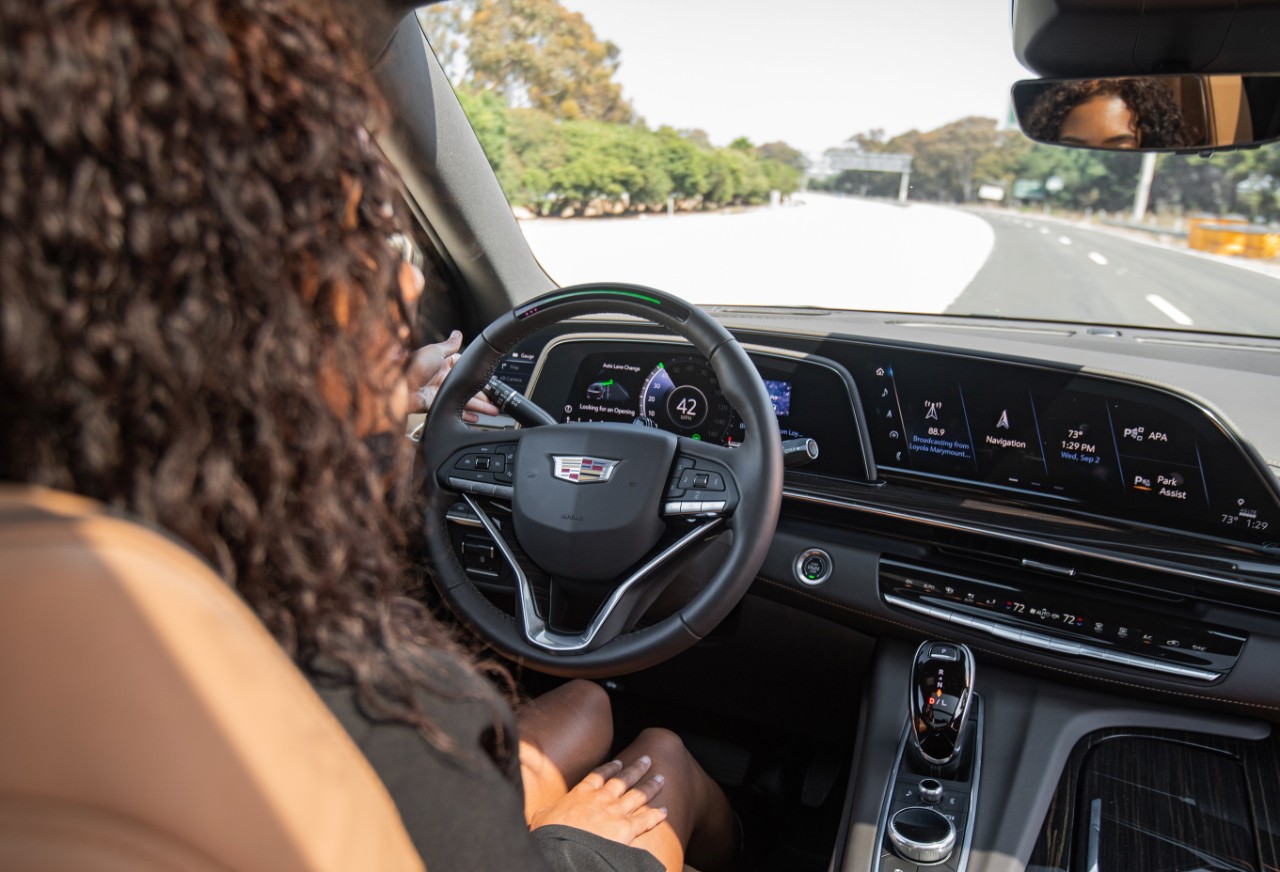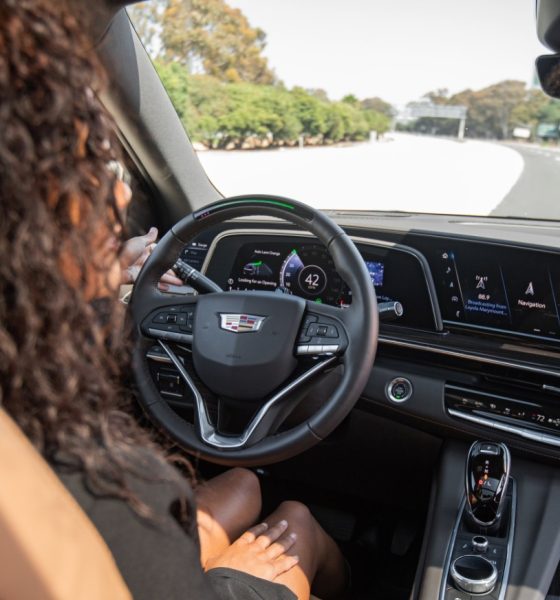

News
Survey shows Americans don’t trust self-driving cars. They also don’t know you can’t buy one.
A new survey revealed that a startling number of Americans feel less safe in a self-driving vehicle. However, the same survey also revealed that nearly one-in-four Americans believe you can currently buy a vehicle that is designed to let drivers take their eyes off the road.
The survey from Policygenius revealed that 76 percent of respondents are not convinced of a self-driving vehicle’s accuracy or safety, and they feel less safe in one rather than a human-controlled car. Additionally, 73 percent of people said they feel less safe knowing other people on the road are traveling in cars with self-driving features.
As self-driving features, semi and fully-autonomous vehicles begin to become more popular with companies like Tesla, Waymo, Cruise, and others pushing their driver assistance systems; the future is undoubtedly here. However, consumers are skeptical of the technology and its capabilities.
“Whether because of road rage, reckless driving, or car accidents, it’s understandable that many people are wary of taking their eyes off the road and relying on a self-driving car,” Rachel Brennan of Policygenius said. “As advances in autonomous vehicle technology continue, auto companies and insurance companies will need to resolve a number of challenges, from helping people feel safe on the road to navigating new insurance implications, like who is at fault in an autonomous vehicle incident.”
33 percent of respondents also stated that a car with full self-driving capability would still require constant attention. 80 percent said they would not pay more to own a car with self-driving features.
Unfortunately, this is not the first study that has supported these claims. AAA revealed in May 2022 that 85 percent of people are still fearful or unsure of self-driving tech; a number that has stayed relatively steady for several years, the survey’s report said. 85 percent also stated they would not feel comfortable using a self-driving vehicle to transport their loved ones.
The issue of liability also seems to raise some concerns with consumers. The survey said Americans are divided at 50/50 on who should be held responsible if a car crashes while self-driving features are in control: the driver or the manufacturer.
The issue is that consumers are not educated enough on the capabilities, or even the availability of self-driving vehicles. The same survey showed 24 percent of consumers believed fully-autonomous vehicles are available to buy and drive right now, which simply is not true.
RELATED:
General Motors’ Cruise taxis to expand to Phoenix and Austin
Self-driving vehicles are still years away, but semi-autonomous functionalities are still highly efficient and widely available across many manufacturers. Nearly every vehicle out there has some sort of driver assistance feature, which includes lane centering or traffic-aware cruise control. However, there is not a vehicle on the market right now that is capable of full autonomy, which would mean a driver could sleep during the vehicle’s operation.
You can’t necessarily blame consumers, though. In a quest for clicks, ad dollars, and viewership, YouTubers and other social media influencers have caricatured the capabilities of these vehicles, which has put out a false narrative of the real-world abilities of vehicles with self-driving features. No matter what you see or read, know that you or anyone else cannot walk onto a dealership lot or log onto a website and buy a car that drives you places. It does not exist.
I’d love to hear from you! If you have any comments, concerns, or questions, please email me at joey@teslarati.com. You can also reach me on Twitter @KlenderJoey, or if you have news tips, you can email us at tips@teslarati.com.

Cybertruck
Tesla drops latest hint that new Cybertruck trim is selling like hotcakes
According to Tesla’s Online Design Studio, the new All-Wheel-Drive Cybertruck will now be delivered in April 2027. Earlier orders are still slated for early this Summer, but orders from here on forward are now officially pushed into next year:

Tesla’s new Cybertruck offering has had its delivery date pushed back once again. This is now the second time, and deliveries for the newest orders are now pushed well into 2027.
According to Tesla’s Online Design Studio, the new All-Wheel-Drive Cybertruck will now be delivered in April 2027. Earlier orders are still slated for early this Summer, but orders from here on forward are now officially pushed into next year:
🚨 Tesla has updated the $59,990 Cybertruck Dual Motor AWD’s estimated delivery date to April 2027.
First deliveries are still slated for June, but if you order it now, you’ll be waiting over a year.
Demand appears to be off the charts for the new Cybertruck and consumers are… pic.twitter.com/raDCCeC0zP
— TESLARATI (@Teslarati) February 26, 2026
Just three days ago, the initial delivery date of June 2026 was pushed back to early Fall, and now, that date has officially moved to April 2027.
The fact that Tesla has had to push back deliveries once again proves one of two things: either Tesla has slow production plans for the new Cybertruck trim, or demand is off the charts.
Judging by how Tesla is already planning to raise the price based on demand in just a few days, it seems like the company knows it is giving a tremendous deal on this spec of Cybertruck, and units are moving quickly.
That points more toward demand and not necessarily to slower production plans, but it is not confirmed.
Tesla Cybertruck’s newest trim will undergo massive change in ten days, Musk says
Tesla is set to hike the price on March 1, so tomorrow will be the final day to grab the new Cybertruck trim for just $59,990.
It features:
- Dual Motor AWD w/ est. 325 mi of range
- Powered tonneau cover
- Bed outlets (2x 120V + 1x 240V) & Powershare capability
- Coil springs w/ adaptive damping
- Heated first-row seats w/ textile material that is easy to clean
- Steer-by-wire & Four Wheel Steering
- 6’ x 4’ composite bed
- Towing capacity of up to 7,500 lbs
- Powered frunk
Interestingly, the price offering is fairly close to what Tesla unveiled back in late 2019.
Elon Musk
Elon Musk outlines plan for first Starship tower catch attempt
Musk confirmed that Starship V3 Ship 1 (SN1) is headed for ground tests and expressed strong confidence in the updated vehicle design.

Elon Musk has clarified when SpaceX will first attempt to catch Starship’s upper stage with its launch tower. The CEO’s update provides the clearest teaser yet for the spacecraft’s recovery roadmap.
Musk shared the details in recent posts on X. In his initial post, Musk confirmed that Starship V3 Ship 1 (SN1) is headed for ground tests and expressed strong confidence in the updated vehicle design.
“Starship V3 SN1 headed for ground tests. I am highly confident that the V3 design will achieve full reusability,” Musk wrote.
In a follow-up post, Musk addressed when SpaceX would attempt to catch the upper stage using the launch tower’s robotic arms.
“Should note that SpaceX will only try to catch the ship with the tower after two perfect soft landings in the ocean. The risk of the ship breaking up over land needs to be very low,” Musk clarified.
His remarks suggest that SpaceX is deliberately reducing risk before attempting a tower catch of Starship’s upper stage. Such a milestone would mark a major step towards the full reuse of the Starship system.
SpaceX is currently targeting the first Starship V3 flight of 2026 this coming March. The spacecraft’s V3 iteration is widely viewed as a key milestone in SpaceX’s long-term strategy to make Starship fully reusable.
Starship V3 features a number of key upgrades over its previous iterations. The vehicle is equipped with SpaceX’s Raptor V3 engines, which are designed to deliver significantly higher thrust than earlier versions while reducing cost and weight.
The V3 design is also expected to be optimized for manufacturability, a critical step if SpaceX intends to scale the spacecraft’s production toward frequent launches for Starlink, lunar missions, and eventually Mars.
News
Tesla FSD (Supervised) could be approved in the Netherlands next month: Musk
Musk shared the update during a recent interview at Giga Berlin.

Tesla CEO Elon Musk shared that Full Self-Driving (FSD) could receive regulatory approval in the Netherlands as soon as March 20, potentially marking a major step forward for Tesla’s advanced driver-assistance rollout in Europe.
Musk shared the update during a recent interview at Giga Berlin, noting that the date was provided by local authorities.
“Tesla has the most advanced real-world AI, and hopefully, it will be approved soon in Europe. We’re told by the authorities that March 20th, it’ll be approved in the Netherlands,’ what I was told,” Musk stated.
“Hopefully, that date remains the same. But I think people in Europe are going to be pretty blown away by how good the Tesla car AI is in being able to drive.”
Tesla’s FSD system relies on vision-based neural networks trained on real-world driving data, allowing vehicles to navigate using cameras and AI rather than traditional sensor-heavy solutions.
The performance of FSD Supervised has so far been impressive. As per Tesla’s safety report, Full Self-Driving Supervised has already traveled 8.3 billion miles. So far, vehicles operating with FSD Supervised engaged recorded one major collision every 5,300,676 miles.
In comparison, Teslas driven manually with Active Safety systems recorded one major collision every 2,175,763 miles, while Teslas driven manually without Active Safety recorded one major collision every 855,132 miles. The U.S. average during the same period was one major collision every 660,164 miles.
If approval is granted on March 20, the Netherlands could become the first European market to greenlight Tesla’s latest supervised FSD (Supervised) software under updated regulatory frameworks. Tesla has been working to secure expanded FSD access across Europe, where regulatory standards differ significantly from those in the United States. Approval in the Netherlands would likely serve as a foundation for broader EU adoption, though additional country-level clearances may still be required.








